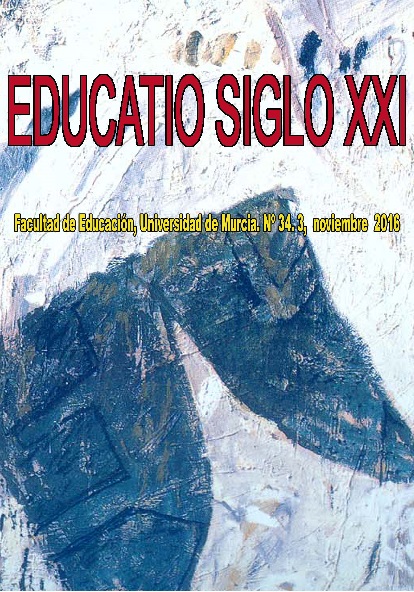Literature as a training resource for princes: evolution throughout the late Middle Ages
Abstract
The current article reviews medieval literature
devoted to the training of princes,
moving through the historiographic tradition.
Therefore, the necessity to form
a governor advised by councillors in the
mission of a saving his people, experienced
a great change during the 11th -14th
centuries: a) a first moment focussed on
defining the virtues of a “good King” in
Liber Iudicum from the Spanish 7th century;
b) a marked oriental character comes from
Al-Andalus, with its chief philosopher as
mentor in the moral exempla at the end of
the 9th and beginning of the 12th centuries;
c) the union of Hispanic inheritance and
Eastern and Western influences typical
of the start of the 13th century, where the
Western preponderance obviously comes
through the influence of Egidio Romano
and his De regimine principum. It is in this
way that the genre of “mirrors of princes”
is shaped as a compendium of traditions
promoted by Alfonso X, with his famous
Especula, Book of the Seven Items and his
definitive Setenario, which accommodates
the Secretum Secretorum by Aristoteles in
the exemplary image of his father, Fernando
III.
Downloads
-
Abstract561
-
PDF (Español (España))478
Original work publishes in this journal is subject to the following terms:
1. Murcia University Press (the publishing house) holds the copyright of the publishes work, and favours and allows their reutilization under the use license stated in point 2.
© Servicio de Publicaciones, Universidad de Murcia, 2015
2. Work is published in the electronic edition under a license (Creative Commons Reconocimiento-NoComercial-SinObraDerivada 4.0 España (legal text). They can be copied, used, disseminated, transmitted and publicly presented, as long as: i) authorship and original publication source is acknowledged (journal, publishing house and URL of the work); ii) are not used for commercial purposes; iii) the existence and specifications of this use license is stated.
3. Conditions for self-archive. Authors are allowed and encouraged to disseminate electronically the pre-pint (before review) and/or post-print (accepted for publication) versions of their work before their publication since that favours earlier circulation and dissemination resulting in an increased chance for the authors to be cited and for the work to reach a bigger share of the academic community. Colour: RoMEO: green.








